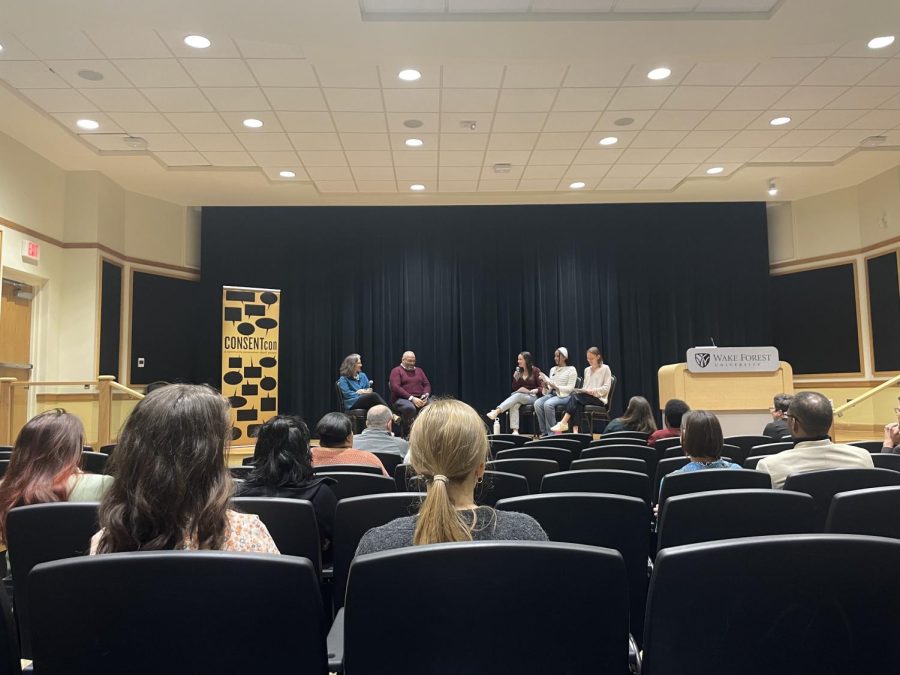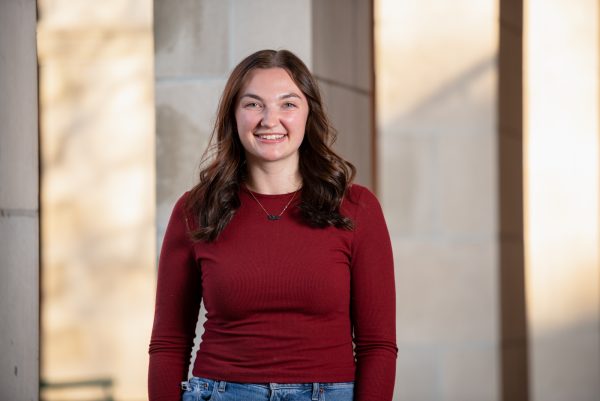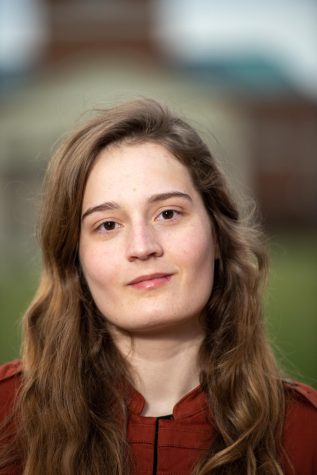University hosts first annual ‘ConsentCon’
Students and faculty gather to discuss interpersonal violence and the importance of consent
Jennifer Hirsch and Shamus Khan join three Wake Forest students in a panel to discuss the importance of sexual citizenship.
February 22, 2023
Wake Forest held its first annual ConsentCon on Friday, Feb. 17 –– a convention to spark conversation about consent and sexual assault prevention. About 159 Wake Forest community members gathered in Benson Center to attend two keynote sessions and participate in up to three workshops.
In her opening remarks, Vice President for Campus Life Shea Kidd Brown shared the importance of uniting as a university to address pervasive issues of consent on campus.
“When we think about consent, it takes all of us,” Kidd Brown said. “When we say ‘the university needs to, we are, in fact, the university.”
Last November, Wake Forest released the results of the university’s inaugural Campus Climate Survey, which revealed alarming statistics of sexual assault on campus. As detailed in an Old Gold & Black article published in November, 38% of the 7,357 undergraduate and graduate students who received the survey responded. Of this sample, 55.4% reported an incident of sexual misconduct since becoming a Wake Forest student.
Director of Wake Forest’s Title IX office and ConsentCon planning committee member Aishah Casseus explained that specific survey results did not inform the event’s planning. However, she did say that when the event was in its planning stages, university officials knew some results would be released and wanted to create programming proactively.
“I wanted [ConsentCon] to do something that showed that we weren’t just getting survey results,” Casseus said. “I didn’t want there to be a gap [in time between the results and administrative action]…we wanted to have some things ready to go as a result of the results.”
After acknowledging the steps the university has taken to promote consent on campus, Kidd Brown shared three hopes for the inaugural event — that the attendees would engage in mindful conversation, build community and support those who presented at the event.
She then introduced the first keynote speaker, founder and CEO of Start By Talking, Wanda Swan. After expressing her hope for Wake Forest regarding survivor awareness and intention for change, she spoke about the links between sexual assault and social justice issues such as racism and classism.
“It’s all connected,” Swan said. “We know sexual violence is connected to housing disparity and police brutality. It is connected to so many lived experiences that people have to navigate. If we only focus on one space, people will still have to go home to these systems.”
Swan challenged audience members to create communities focused on survivor care and sexual assault prevention. She expressed how vulnerability, accountability and humility are crucial to cultivating spaces for honest conversation. Casseus shared the importance of this dialogue.
“I think we have to keep the conversation at the forefront,” Casseus said. “The thing about a college or university is that the people are not static. If I’m in a corporation, there’s people who are coming in and leaving the corporation, but it’s not like it is at a university where there’s a consistent turnover. People come in every year and then leave, so the conversation has to remain a part of the culture.”
First-year graduate student Brooke Nixon emphasized the critical role students play in discussions about consent.
“I think what’s interesting about [Swan] is that she talked about how these issues are linked to much deeper entrenched issues in culture,” Nixon said. “I guess, as students, it makes it our responsibility to be the ones to help lead these conversations and ensure accountability for offices that might be more deeply entrenched in them.”
Later, the authors of “Sexual Citizens,” Jennifer Hirsch and Shamus Khan, sat down with Wake Forest students to discuss their research and further explain the systemic nature of sexual violence.
“Part of the reason we argue and we fail to solve this problem is that it is seen as a campus problem,” Hirsch said. “It is an everyone problem.”
She continued: “The kinds of assault that we focus on in ‘Sexual Citizens’ are ones where people hurt other people because they didn’t learn to do better. We should frame this conversation about how to have sex without hurting each other. It’s about bringing everyone into this conversation.”
Executive Director of the Center for the Advancement of Teaching Betsy Barre studies sexual ethics with her first-year seminar students — three of which moderated the panel with Hirsch and Khan. Barre shared that, while the university is taking steps toward important conversations about consent, the community still has work to do.
“I think we are doing okay, but I think we could do more,” Barre said. “I think we are doing a lot more than a lot of institutions, and I think that books like [‘Sexual Citizens’] structure the conversation in important ways. So one of my goals is to get this book as a common reading across campus where all students read it, and we can talk about it together.”
Following the keynote addresses, the convention featured concurrent workshop sessions that ranged in topics including Title IX for student-athletes, identifying red flags in relationships and deconstructing toxic masculinity.
Sessions emphasizing student engagement and prevention work were led by university administrators and various campus groups, including Alpha Phi Alpha Fraternity, leaders in Student Engagement and the Sexual Health Advisory Group (SHAG).
In the session “What’s in the Punch? Centering harm reduction in student organizations,” attendees filled out posters with protective and risk factors of sexual assault that they perceived within student organizations and the broader Wake Forest community.
One of the session’s attendees, junior Benn Clegg, commented on the progress he perceived in the university’s climate after learning that this was the university’s first ConsentCon.
“I think recently, [Wake Forest] has started to facilitate conversations [about consent] more,” Clegg said. “I’d say during my freshman and sophomore year, conversations weren’t happening so much, and they’ve done a good job improving things.”
Sophomore Samantha Briggs echoed Clegg and expressed her appreciation for events like ConsentCon.
“I’ve never seen the school offer anything like this specifically or this much” Briggs said. “So it’s good to see.”
Administrators hope that ConsentCon will become an annual event. Casseus shared her hopes for a larger audience and future conventions on campus.
“My hope is now that students have seen it and maybe heard from other students I will see more participation,” Casseus said. “I just hope that it continues to keep the conversation moving. I hope it’s something people look forward to. I hope that it’s something that we can all be proud of and excited about.”
























